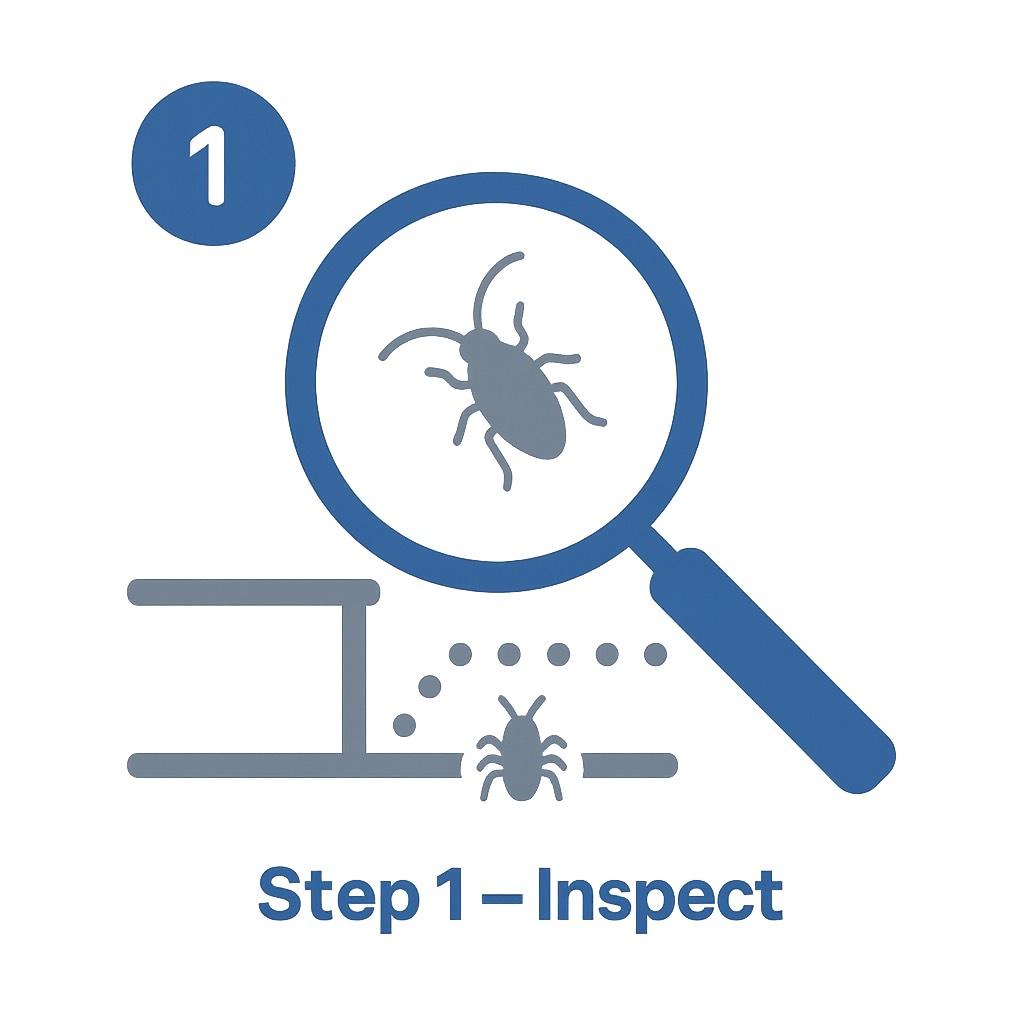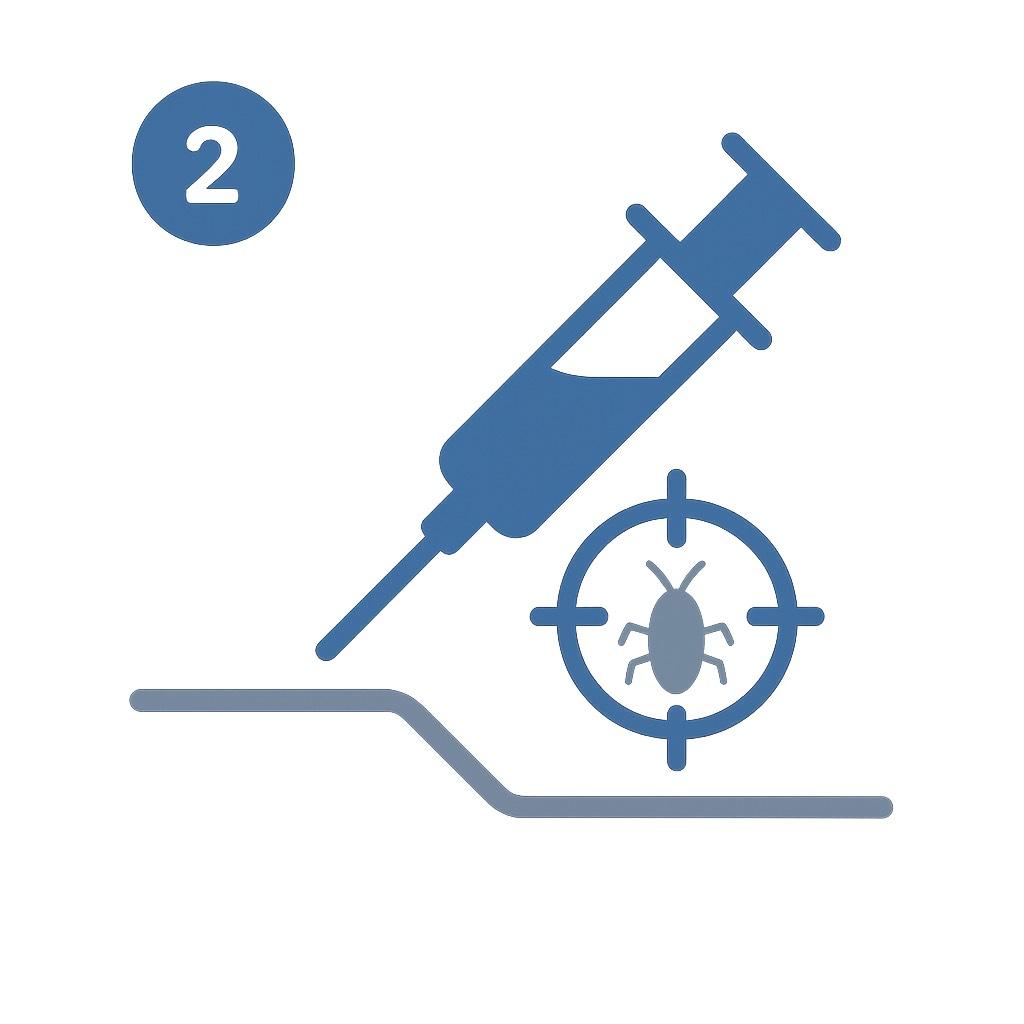 Skip to main content
Skip to main content
Our A+ BBB rating isn’t just for show — it means we deliver safe, effective fly elimination when it matters most. From drain flies to fruit flies, we stop infestations at the source. Don’t wait. One call to BBH can help you protect your space and prevent flies from coming back.


We identify breeding sources such as drains, garbage areas, food prep stations, and entry points.

We apply safe treatments to drains, surfaces, and harborage areas while reducing moisture and sanitation risks.”

We provide long-term prevention strategies, including exclusion and treatment plans to stop re-infestations.

• You need fast knockdown of fruit flies, drain flies, or house flies
• You want a budget-friendly, single service
• You don’t require warranty coverage

• You want full elimination of fly breeding sources
• You run a restaurant, bar, or food business where flies can hurt customers or inspections
• You want warranty coverage for peace of mind
| Feature | One time service (control) | Treatment Plan (+ Warranty) |
|---|---|---|
| How It Works |
Single targeted visit focused on immediate knockdown
|
Initial service plus scheduled follow-ups to ensure full elimination
|
| Effectiveness |
Provides quick relief from visible pests, but reinfestation is possible
|
Eliminates both visible and hidden pests with long-term monitoring
|
| Eco Friendliness |
100% chemical-free, safe for pets, children, and those with allergies.
|
Uses professional-grade chemicals that are safe when applied correctly.
|
| Speed of Results |
Fast results — visible reduction after one visit
|
Fast relief with added protection that keeps working over time
|
| Cost |
Lower upfront cost; ideal for budget-conscious customers
|
Higher total investment, but includes warranty and fewer long-term issues
|
| Best for... |
Customers who need short-term control or peace of mind quickly
|
Homes, apartments, and businesses seeking elimination + ongoing protection
|
| Preparation Required |
Minimal prep — clearing small areas for treatment access |
More preparation — ongoing inspection, sanitation, and follow-up readiness
|
| Residual Protection |
Limited — effectiveness ends shortly after treatment
|
Strong and lasting — ongoing protection through scheduled visits
|
| Safety Considerations |
Safe, licensed methods applied by trained professionals
|
Same safety standards plus repeat inspections for added assurance
|
Whether you’re dealing with fruit flies in the kitchen, drain flies in your sinks, or house flies invading from outside, our licensed team has seen it all. This section answers common questions about fly behavior, risks, and treatment options. Get the facts from NYC experts who know how to stop infestations at the source — and keep them from coming back.
Flies are attracted to food, trash, and moisture sources like drains.
Small, fuzzy flies that breed in sink or floor drains with organic buildup. .
No, they also breed in garbage, spills, and damp mop buckets.
Yes, they spread bacteria and pathogens on food and surfaces.
They feed by regurgitating enzymes and sucking up liquids.
Some species lay eggs that hatch into larvae within 24–48 hours.
Houseflies don’t bite, but certain species like stable flies do.
Warm, humid conditions speed up breeding cycles.
Yes, drain flies breed in organic slime in sinks, tubs, and floor drains.
A small spill or overripe fruit can attract and sustain large numbers.
es, the buildup of food waste inside makes ideal breeding grounds.
Most flies live 2–4 weeks, but reproduce rapidly.
Yes, they can transmit parasites and bacteria to pet food and water.
They’re attracted to light and heat sources.
Most are daytime insects, but some species may fly at night.
Yes, but eggs and pupae survive until warmer conditions return.
Small flies like fruit or drain flies can slip through gaps.
Moisture and organic buildup in drains attract them.
Not usually, but eggs laid on fruit can hatch if the food warms.
They’re following air currents that carry food odors.
nuisance — they spread germs, contaminate food, and drive away comfort in homes and businesses. With over a decade of experience, BBH Pest Management delivers licensed and insured fly treatments that eliminate infestations at the source. From drain flies and fruit flies to house flies and blow flies, our proven methods keep your property protected. First-time customers also get 15% off — because a fly-free space shouldn’t break the bank.


